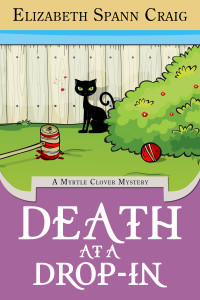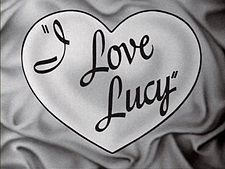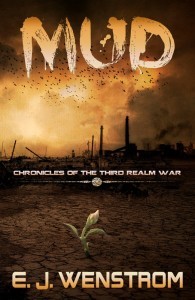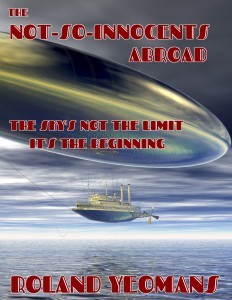Riley Adams's Blog, page 106
April 3, 2016
Making Changes to a Published Book
by Elizabeth S. Craig, @elizabethscraig
One of the things that delights me about self-publishing is the ability to go into a published book’s files and make changes.
For my traditionally-published books, I can’t do a darn thing with the files. I’ve alerted both Penguin Random House and Midnight Ink to reader-reported problems with both digital and print files that have resulted in missing pages, duplicate pages, and–in one particularly horrifying example–a completely different book from a completely different author that Penguin Random House implanted in the last half of one of my mysteries. Problem at the printer? I’ve no idea, but I knew that the chance that I could get it fixed was iffy. I ended up sending these readers signed copies of the book from my personal stash at home.
For my self-published books, I’ve made changes to the finished files quite a few times and for different reasons.
Changing a cover. I’ve learned that the most important thing we can do to brand a series is to have covers that clearly show a connection between the books. I had one book in my Myrtle Clover mysteries that definitely didn’t look like the others. There was nothing wrong with the cover, it just didn’t fit in. I was in-between designers and couldn’t really articulate to the new designer what I was looking for.
Finally I decided to make a change. I contacted my current cover designer, Karri Klawiter and asked her to recover the book for me (which she did…new cover is above). Once I’d changed it, I wished I’d taken care of it earlier because I had no issues at all involving customer confusion. That’s mainly due to the fact that Amazon will not allow us to purchase the same book twice without alerting us that we already own the title in question.
But there were several things I did to try to avoid reader confusion. For one, I didn’t announce it on my newsletter, or call attention to it in any way. And on Amazon and my website, I noted that the book had a new cover.
Formatting changes–Amazon’s request. You may remember my saga with Amazon over problematic formatting. If not, here’s the post on it. Suffice it to say that we can easily reformat a file (I had mine reformatted professionally by my current formatter, Rik Hall, but we can also handle our own formatting using tools like Calibre and Draft2Digital and Reedsy).
Updates to a file to make it more current. I’ve already gone back in to a couple of old files and updated references to make them more current/ageless. I’ve removed technology references (specific to older tech) and I’ve also removed references to things that were in the news at the time. Now I’m trying to focus on writing fairly timelessly in the hopes that I don’t date my books too much for the future.
The occasional typo. I’m not going to lie and say these don’t happen. They’re also in my Penguin books, but aren’t being corrected. It’s nice to know I can correct the ones in my self-published books.
Updating back matter. I’ve gone back into book files to update my bio, list of books, and to plug my newsletter.
When problems occur. Sometimes, issues occur with updates. I’ve found that, when they occur, it’s usually at Amazon (no problems with the other retailers for me). Remember, if you change the title of your book, it will likely be listed as a completely separate book with Amazon’s ASIN system and your reviews won’t automatically connect to the new book/title. You might also find that your print books and your digital books are listed as different stories because a new title means you’ll need a new ISBN for a print file.
You can link to your new books through Amazon Author Central and ask Amazon to unlink the old books (with the old covers/titles).
If you don’t get changes quickly, you can always contact Amazon: https://kdp.amazon.com/contact-us
Have you updated any book files? Have you ever run into any problems?
Reasons to change a published book file:
Click To Tweet
The post Making Changes to a Published Book appeared first on Elizabeth Spann Craig.
April 2, 2016
Twitterific Writing Links
by Elizabeth S. Craig, @elizabethscraig
Twitterific writing links are fed into the Writer’s Knowledge Base search engine (developed by writer and software engineer Mike Fleming) which has over 30,000 free articles on writing related topics. It’s the search engine for writers.
(developed by writer and software engineer Mike Fleming) which has over 30,000 free articles on writing related topics. It’s the search engine for writers.
What Comes Before You Start Writing: Premise, Execution, World: http://ow.ly/ZGxkM @mileconnors
Quick tip for selling more books on Pinterest: http://ow.ly/ZGwon @sandrabeckwith
.@KillerNashville offers awards for pubbed and unpubbed writers: http://ow.ly/106BxM and http://ow.ly/106BGm (Deadline Apr.30)
The importance of LinkedIn: http://ow.ly/ZGxIh @lisajjackson
10 Types of Apostrophe Errors to Avoid: http://ow.ly/ZGxMh @writing_tips
Trunked manuscripts after you’re already published: http://ow.ly/ZGxvY @jodimeadows
Why Repeating Yourself In Dialogue Can Be A Good Thing: http://ow.ly/ZGxOj @MiaJouBotha
5 Common Problems With Middles: http://ow.ly/ZGxAQ @Janice_Hardy
10 rock-solid reasons why authors should build an email list: http://ow.ly/ZGwhB @PublicityHound
5 Quick Ways to Warm Up Your Mind Before Writing: http://ow.ly/ZGwUf @paperblanks
3 tips for seamless scene setting: http://ow.ly/ZGw82 @Sonja Yoerg
5 Reasons NOT to Attend a Writing Conference: http://ow.ly/ZGyua @lthomaswrites
3 Mistakes to Avoid With Your Social Media Strategy: http://ow.ly/ZGyD4 @a3forme @susanrstilwell
Plot Don’t Preach: The Art of Picture Book Writing: http://ow.ly/ZM6mj by Sue Bradford Edwards
5 Obstacles to a Realistic Interstellar Empire: http://ow.ly/ZM6gw by Oren Ashkenazi
3 Steps to Your Perfect Writing Life: http://ow.ly/ZM5RL @suddenlyjamie
Editing Hacks: http://ow.ly/ZM5dE @AJHumpage
On Not Writing: An Illustrated Guide to Anxieties: http://ow.ly/ZM5EJ by Ingrid Rojas Contreras @ElectricLit
How Reality TV Can Make You a Better Writer: http://ow.ly/ZM5X4 @WomenWriters @perfectpen
Real Life Diagnostics: 2nd Look at a Sci Fi Historical Opening: http://ow.ly/ZM5rR @Janice_Hardy
Pacing: What Plot And Poker Have In Common: http://ow.ly/ZM4YI by Codey Amprim
Writing Crime Fiction: 10 Years Later: http://ow.ly/ZM55o @libbyhellmann
Script Analysis: “Gone Girl” : Scene By Scene Breakdown: http://ow.ly/ZM5iw @GoIntoTheStory
The Key to Finding Your Why (and how to block out the noise): http://ow.ly/ZM596 @BlotsandPlots
The Perils Of Omniscient POV: http://ow.ly/ZNf9A @kellysimmons
5 Tips To Become A Better Blogger: http://ow.ly/ZNg19 @verylastpaige
6 Hot Tips for Putting Soul Into Your Setting: http://ow.ly/ZNgBl @SGarberGirl
High Fantasy Vs. Epic Fantasy: http://ow.ly/ZNg6g @SaraL_Writer
5 Tricks To Kicking Down The 4th Wall: http://ow.ly/ZNgR0 @sacha_black
34 Reasons to Stop Writing Forever: http://ow.ly/ZNgvV @NathanielTower
Writers must follow their hearts and their heads: http://ow.ly/ZNeV0 @nicolamorgan
The Power of Positive Writing: http://ow.ly/ZNgmN @WordDreams
Why Putting Books in Print is Worth the Hassle: http://ow.ly/ZNfgP @kayelleallen
Exposition in screenwriting: http://ow.ly/ZNeHD @GoIntoTheStory
Scenes as Capsules of Time: http://ow.ly/ZNh2d @CSLakin
A Simple Author Metadata Audit in Less Than 30 Minutes: http://ow.ly/ZRw0g @Wogahn
17 Tips for Successful Facebook Contests: http://ow.ly/ZQ8Jg @shortstackjim
How to Write a Book Description: http://ow.ly/ZQ6jD @JeriWB
How to Book Your Own Blog Tour: http://ow.ly/ZQ9bE @Saboviec
10 Lessons Learned Behind the Scenes of a Book Deal: http://ow.ly/ZQ7y4 and http://ow.ly/ZQ6X8 @jessicastrawser
Validating the Reader’s Concerns: http://ow.ly/ZQ81A @SeptCFawkes
Beloved: The Best Horror Novel the Horror Genre Has Never Claimed: http://ow.ly/ZQ8q8 @grady_hendrix @tordotcom
Indie Authors: Focus on What Matters Most and Take Action Now: http://ow.ly/ZGx0E by Judy Baker @jfbookman
Free #podcast series for #writers from @FolioLiterary and Salt Cay Writers Retreat: http://ow.ly/106ziX @KarenDionne
R.U.E.: Resist the Urge to Explain: http://ow.ly/106ehT @authorterryo
The Power of Free: How to Sell More E-Books: http://ow.ly/106e9X @markcoker
Age Categories for Children’s Books: http://ow.ly/ZECNM @lwreyes
28,000 French-Language Ebooks Are Newly Available in the US: http://ow.ly/106cud @Porter_Anderson @albertinebooks @franceinnyc
The Top 55 Apps for Writers in 2016: http://ow.ly/104UhA @TheExpertEditor
Hype Cycles and Book Wars: Nielsen’s BookInsights Conference: http://ow.ly/1029M0 @RogerTagholm @Porter_Anderson
How to Market Yourself at Conferences: http://ow.ly/ZEDr9 @jameslrubart
An Agent Analyzes a Successful Query: http://ow.ly/ZECQu @SaraMegibow
How to write a book fast: 5 Musts: http://ow.ly/ZEDA9 @nownovel
Publishing Your First Book? Follow These Steps: http://ow.ly/ZEDjV @CaballoFrances
10 Screenwriting Errors To Avoid: http://ow.ly/ZEDwT @NormanArvidsson
11 Reasons Authors Need Social Media (And How to Get It Right:) http://ow.ly/ZEDfN @CaballoFrances
7 steps to a good reading: http://ow.ly/ZECWV @gigirosenberg
Writing: Getting Into Other People’s Heads: http://ow.ly/ZECL4 by Dave King
11 Tools to Boost Your Writing Productivity: http://ow.ly/ZECB9 @wework @leona_hinton
Getting in Character: Deep POV: http://ow.ly/ZECGW @kristenlambtx
Discover your next step so you can start walking towards your goal: http://ow.ly/ZEDnm @jccabel
Tips for starting your book: http://ow.ly/ZEBID @JamesTuckwriter
How To Keep Writing Even When You Feel Like a Fraud: http://ow.ly/ZEBqO @TRYbizschool
10 Tips for Reading Through the Eyes of a Writer: http://ow.ly/ZEBkX @tessaemilyhall
Top 10 tips on how to write like William Shakespeare: http://ow.ly/ZEB3U @mrsdebspatters
Write, Erase, Do It Over: On Failure, Risk and Writing Outside Yourself (Interview with Toni Morrison): http://ow.ly/ZEAIs
1 Word Leads To The Next: Unconventional Conjunctive Devices: http://ow.ly/ZBfMi @chuckpalahniuk
7 Tips on How To Write a Better Open Letter: http://ow.ly/ZBfCv @helpfulsnowman
The Logistics of World Building: Algebra for Fantasy Writers: http://ow.ly/ZBfub @brianstaveley @tordotcom
Top 3 Submission Errors and How to Fix Them: http://ow.ly/ZBfj8 by Ann Leslie Tuttle @RomanceUniv
Radius Book Group: International Self-Pubbing: http://ow.ly/1029eM @Porter_Anderson @pubperspectives
Bean Counting for Authors: http://ow.ly/ZBeUT @cwritebuzz @RomanceUniv
This App Deletes Words if Authors Stop Typing: http://ow.ly/Zztje @initialskh
Australian-Canadian Funding Goes to Digital Storytelling Projects: http://ow.ly/1028YP @Porter_Anderson @katepullinger
6 Illustrations That Show What It’s Like in an Introvert’s Head: http://ow.ly/ZzsT4 @fosslien @molliewest @livequiet
Jo Nesbø’s Perfect Writing Room (That He Never Uses): http://ow.ly/ZyR6F @thelithub
Keep readers’ interest by creating unique posts for your blog tour (by @rxena77) : http://ow.ly/ZZmyM
The Ultimate Story Checklist: Rushmore: http://ow.ly/Zx1CL @cockeyedcaravan
The Importance of Religion in the Horror Genre: http://ow.ly/ZyRJv @movieguyiguess
Should you write the book of your heart? http://ow.ly/ZyRUn @stephmorrill
Determined to Meet Your Writing Goals? Set Up a Production Schedule: http://ow.ly/ZyQLo @mridukhullar
4 Ways to Optimize Your Facebook Ads: http://ow.ly/ZyPFA @CarolynBerk
Lists of descriptive words: http://ow.ly/ZyQqk @tamsinsilver
Storytelling Across Media: Q&A with Laurie McLean, @AgentSavant: http://ow.ly/ZyPOj @JaneFriedman
High Stakes Are Tricky: http://ow.ly/ZyS4t @Kid_Lit
Imagining your future projects is holding you back. http://ow.ly/Zx0vu @jccabel
5 Valuable Writing Tips from Madeleine L’Engle: http://ow.ly/Zx09q @ladieswhowrite
6 Lessons from ‘Still Writing’ by Dani Shapiro: http://ow.ly/Zx1In @karenmarston
3 Paths To Publishing and What You Need To Know: http://ow.ly/Zx1yE @writersedit
7 Reasons You’re Not Living Up to Your Potential: http://ow.ly/ZwZZj @JenGresham
Getting the Work Done by Setting the Bar Low: http://ow.ly/ZY2O9 @hwrightwriter
The links I shared last week: http://ow.ly/ZY0kI . All the links I’ve ever shared (30K+, free and searchable): writerskb.com
What 1 Writer learned by Playing a Victim in a Live Shooter Training: http://ow.ly/Zx1QQ @FionaQuinnBooks
Are These The 4 Most Neglected Pages On Your Blog? http://ow.ly/Zx1jJ @MiaJouBotha
Terrible Writing Advice From Famous Writers: http://ow.ly/Zx0JN by Danielle Dutton @thelithub
Too Late to Start Writing? http://ow.ly/Zx04V @KeithCronin
The Diversity of Today’s Cutting Edge Sci-Fi: http://ow.ly/Zx1X5 @soniagracelm @fantasyfaction
The top writing links of last week are on Twitterific:
Click To Tweet
The post Twitterific Writing Links appeared first on Elizabeth Spann Craig.
March 31, 2016
Spring Cleaning for Writers
by Elizabeth S. Craig, @elizabethscraig
Although I like to declutter and organize at intervals year-round, I do make a more focused effort in the spring. That’s because my RSS feed is full of spring cleaning tips.
Frequently these tips address cleaning dirty windows or dryer filters, but there are also a few reminders out there to spring clean our digital content and sites.
I decided to make a list to consolidate the electronic spring cleaning I’ve done in past years.
Update my website. This is more than just spring cleaning for me–I’ve got a monthly reminder on my Google Calendar to ensure my site is up-to-date. But I’m more thorough in the spring. I check for broken links, consider dropping or adding content in my sidebar and header/footer, look for old ‘updates’, ensure my bio and contact info is updated, backup my site, install any software or plugin updates, check page load speed, and make sure my site looks good on mobile and all browsers (sometimes browsers update and our site may not look good in the browser after the update).
Email. Even though Gmail and other programs hold lots of data, I do like to go through and unsubscribe to unneeded newsletters, archive old material, and delete emails I no longer need.
Word. I make sure most documents are in folders, delete old drafts of long-published books, and tag files to make locating them easier in the future.
Catch up on my scanning. I’m trying to go as paper-free as possible. I use the free software Evernote and One Note to help me keep information organized. I also use a free app, CamScanner, to take pictures of documents with my phone and then email them to myself for a quick digital copy. Again, tagging the documents helps to locate them later.
Social media. Are my bios up-to-date? What about my privacy settings and contact info? Have I changed my passwords recently? Are there people I should be following back? What apps am I allowing to access my accounts (review and either keep or revoke access)? Should I refresh a header/cover/background? Are there any groups that I want to leave?
Amazon author page and individual book pages. Is my bio updated? My photo? Are all my books linked to on my Amazon Author Central page? Am I still happy with the book descriptions on my book pages? How do the editorial reviews look now–should I add any positive reviews?
Backup. Backing up our data, websites, etc. doesn’t have to be a major chore or an expensive one. I like to have at least two locations I back data up to–one in the cloud (emailing files to ourselves counts), and one in an external hard-drive (the prices are way down. You can get 1 terabyte for about $50 on Amazon).
What else should I add to my list?
A checklist for writers of social media and website spring cleaning chores:
Click To Tweet
Image: MorgueFile: Pippalou
The post Spring Cleaning for Writers appeared first on Elizabeth Spann Craig.
March 27, 2016
Why Stumble at the Finish Line?
by Roland Yeomans, @rxena77
Yes, it is another stop along my “Don’t You Hate Blog Book Tours?” Book Tour.
Me? I’m Roland Yeomans: teacher, dreamer, writer.
We writers are observers: how we interact with one another; how hard we labor for our dreams … how we shoot ourselves in the foot with our impatience.
“Impatience kills quickly what took so very long to achieve.”
– Samuel McCord {Narrator of The Not-So-Innocents Abroad}
Over long months, we pour our hearts, our imaginations, our creativity into our novels …
… only to imply our finely crafted narrative is long, boring, and unimaginative with a bruising string of cookie-cutter blog book posts.
Think Movie Trailer:
Don’t you get tired of seeing the same one over and over and over again? Don’t you perk up when you see a different one with new scenes, new dialogue? Don’t you groan when trailers give away the whole story or the surprise twist of the ending?
Same with our blog book tour posts:
MAKE each one different. Hard? So was writing a fine novel. Get over it and do it.
MAKE the posts funny. (No, don’t do it by talking about your love life!) The ghost of Mark Twain just swatted me with his white bowler. The old scoundrel wants to hear about it!
MAKE them memorable in some distinct fashion.
Readers will take away from those posts that your novel will be the same: Entertaining – worth their money and their time.
And talking movie previews …
When the Xanadu, the first Air-Steamship, appears above the dark horizon, the rising sun hits the particles of aluminum embedded in its painted surface. It blazes like a miniature sun.
The inhabitants below know its legend, and their hearts leap with the hope that The McCord and his alien wife will somehow make their burdens lighter.
Here is what I think of as the theme of the Xanadu’s Voyage:
Think Telemarketers:
They have their patter down pat and spew it like tobacco auctioneers. Don’t be them.
Don’t repeat the same synopsis of your novel from one blog to another.
Bored visitors will fly from your next book tour post faster than Taylor Swift from an old boyfriend.
Some Blog Lists put up the image that starts off the post …
MAKE each book tour post begin with a different image to make each post of yours different.
If you have a wordless image for the cover of the sequel as I used on this post, use it.
If you have a wordless image of the cover of your present book, use that one for the next visit.
If you have a wordless image you were considering for your cover but discarded it, use that image for the third visit. Shuffle as you go, so that your reader is always looking forward to the next stop.
Think Strip Tease:
Mark Twain just swatted me with his bowler again … and here he peeked through his shielding fingers at the Can Can in Paris…
but you’ll have to read my book to find out more about that.
You may have been wondering why I kept writing “Wordless” about your beginning images.
Don’t hand everything to your readers at once. Tease them with wordless images, making them wonder what the finished cover will look like.
Your Cover:
It is not a painting by Monet. It is a sales tool … that simple, that essential.
Your title must stand out in thumbnail. Your name must do the same – after all, you are in the process of creating a Brand of your name.
The Blub must be legible in the thumbnail.
If your cover does not do those three basic things, your cover is an ineffective sales tool. You have wasted your money.
Hey, let me say a little something about my own book!
In a 1867 only a layer of reality from the one we knew, global kingdoms of revenants (vampires) vie for control of this world.
It amuses the Empress of an Alien People cast down to this dimension from one whose air it is death for humans to breathe.
Her sister is not amused …
for she loves the human the Empress has married. McCord, alone, has seen through the icy façade to the hurt younger sister lost in the shadow of her regal sibling.
An insane Abraham Lincoln and crippled General Sherman hate both McCord and the Empress for reasons you will have to read my book to discover.
Cost of Passage? Only $9.99. A bargain … unless you run into the vampiric Abigail Adams and Benjamin Franklin!
Now Available on Amazon
Roland Yeomans was born in Detroit, Michigan. But his last memories of tha t city are hub-caps and kneecaps since, at the age of seven, he followed the free food when his parents moved to Lafayette, Louisiana. The hitch-hiking after their speeding car from state to state was a real adventure. Once in Louisiana, Roland learned strange new ways of pronouncing David and Richard when they were last names. And it was not a pleasant sight when he pronounced Comeaux for the first time. He has a Bachelor’s degree in English Education and a Master’s degree in Psychology. He has been a teacher, counselor, book store owner, and even a pirate since he once worked at a tax preparation firm. So far he has written thirty-five books. You can find Roland at his web page: www.rolandyeomans.blogspot.com or at his private table in Meilori’s. The web page is safer to visit. But if you insist on visiting Meilori’s, bring a friend who runs slower than you.
t city are hub-caps and kneecaps since, at the age of seven, he followed the free food when his parents moved to Lafayette, Louisiana. The hitch-hiking after their speeding car from state to state was a real adventure. Once in Louisiana, Roland learned strange new ways of pronouncing David and Richard when they were last names. And it was not a pleasant sight when he pronounced Comeaux for the first time. He has a Bachelor’s degree in English Education and a Master’s degree in Psychology. He has been a teacher, counselor, book store owner, and even a pirate since he once worked at a tax preparation firm. So far he has written thirty-five books. You can find Roland at his web page: www.rolandyeomans.blogspot.com or at his private table in Meilori’s. The web page is safer to visit. But if you insist on visiting Meilori’s, bring a friend who runs slower than you.
Keep readers' interest when writing posts for your blog tour (by @rxena77)
Click To Tweet
The post Why Stumble at the Finish Line? appeared first on Elizabeth Spann Craig.
March 26, 2016
Twitterific Writing Links
by Elizabeth S. Craig, @elizabethscraig
Twitterific writing links are fed into the Writer’s Knowledge Base search engine (developed by writer and software engineer Mike Fleming) which has over 30,000 free articles on writing related topics. It’s the search engine for writers.
(developed by writer and software engineer Mike Fleming) which has over 30,000 free articles on writing related topics. It’s the search engine for writers.
100 Common-Sense Ways to Write Better: http://ow.ly/ZqhHN @writingforward
9 Tips for Using HARO to Build Your Freelance Writing Brand: http://ow.ly/ZqiYW @MarianSchembari
Tips & Tricks for Writing Magical Realism: http://ow.ly/ZqiGD and http://ow.ly/ZqiGD and http://ow.ly/ZqiJq @carrollbooks
Turning Points: The Most Effective Way to Build a Compelling Story: http://ow.ly/ZquQl @MartinaABoone On the Merits of Disturbing Literature: http://ow.ly/ZwNvW @parisreview by Hannah Tennant-Moore
Surprise Them with a Twist: http://ow.ly/ZGygl @LisaEBetz
Canada’s Ebook-Bundling ‘Shelfie’ Adds Recommendations: http://ow.ly/ZSZQp @HudPeter @Porter_Anderson
Tips to Ease the Pain of Cutting Words: http://ow.ly/ZtnxF @constcooper
Project Manage Your Novel Revision: http://ow.ly/Ztn8z @FinishedPages
9 IngramSpark Book Discovery Options Surpass CreateSpace: http://ow.ly/ZRuJt @Wogahn
The Care and Feeding of an Author: http://ow.ly/ZtnEB @TracyShawn @Colleen_M_Story
6 Ways to Set Up Scrivener for Writing: http://ow.ly/Ztmyy @ckmacleodwriter
7 Things every post-apocalyptic YA show can learn from The 100: http://ow.ly/Ztnox @blastr @DanyOrdinary
Stillness, Solitude, and the Practice of Writing: http://ow.ly/Ztn0j @suddenlyjamie
17 characters who found a fresh start in the apocalypse: http://ow.ly/Ztngl @TheAVClub
How publishing trends grow: http://ow.ly/Ztn4h @carmitstead
Start Your Passion Project Right Now by Taking 5 Small Steps: http://ow.ly/ZtnJq @jkwak
Twitter for Nonvultures: http://ow.ly/ZtmSV @EmilyFRussell
15 Places to Find Your Next Beta Reader: http://ow.ly/ZtnC9 @KMWeiland
How To Overcome Distraction And Finish Your Book: http://ow.ly/ZtmBC @standoutbooks
Science fiction and climate change: http://ow.ly/ZtnPO @RafiLetzter
What 1 Writer Learned From Starting A Webcomic and then Stopping It: http://ow.ly/Zx1pM by John M. Haley
12 Tips for Writing Good Book Reviews : http://ow.ly/ZwZC8 @womenwriters @SAtrium
Plot Holes and How to Fix Them: http://ow.ly/Zx1dX @fantasyfaction @VickyThinks
The Diversity of Today’s Cutting Edge Sci-Fi: http://ow.ly/Zx1X5 @soniagracelm @fantasyfaction
5 More Signs Your Story Is Sexist: http://ow.ly/ZUGof by Chris Winkle @mythcreants
5 ‘Insider’ Secrets Of Top Fiction Writers: http://ow.ly/ZqhK6 @Yeomanis
Plot Elements Matter: http://ow.ly/ZqhQo @JoeMoore_writer
6 Reasons “Show Don’t Tell” Can be Terrible Advice for New Writers: http://ow.ly/ZqhNA @annerallen
Writing Picture-Book Texts: http://ow.ly/ZqiQS @SophieMasson1
Should Fiction Be Timeless? Pop Culture References in Contemporary Novels: http://ow.ly/ZqhVo @kbpickard457
A Warning About Writing Novels That Ride the News Cycle: http://ow.ly/ZqiNT @ToddJMoss
Music for Writers: Mehmet Ali Sanlikol: ‘Reconstructing My Identity’ In Music: http://ow.ly/ZSYga @AmerCompOrch @Porter_Anderson
French Publisher Short Édition Expands its Short-Story Dispensers: http://ow.ly/ZSY0g @short_edition @Porter_Anderson
Diversity in Publishing: What Happens Now? http://ow.ly/ZoHd3 @ovillalon @thelithub
How to Manage a 99designs Book Cover Contest: http://ow.ly/ZRuoD @Wogahn
Writers need perspective to move past rejections: http://ow.ly/ZoGE6 @sowulwords
5 Signs Your Story Is Sexist: http://ow.ly/ZoGJs by Oren Ashkenazi @mythcreants
Only A Novelist Will Be Able To Make Sense of This (US) Election: http://ow.ly/ZRu6p @ShawnCDrury @pshares
4 Free Tools to Help Build Book Buzz: http://ow.ly/ZoGQ9 @dianaurban
European Commission Asks for Copyright Input from Publishers: http://ow.ly/ZSZIb @Porter_Anderson
How to Sell More Books with Great Book Cover Design: http://ow.ly/Zqhpn @JDSmith_Design
How to Redesign Your Site Without Spending a Fortune: http://ow.ly/ZqhzK @gigirosenberg @JaneFriedman
Zip! Crash! Bang! Using Onomatopoeia: http://ow.ly/ZqhRY @Janice_Hardy
5 TED Talks for Writing Inspiration: http://ow.ly/ZqiWp @kirstythewriter
Using Kickstarter to Fund a Children’s Picture Book: http://ow.ly/ZoGGn @emilygrosvenor
5 Tips to Become More Authentic on Social Media: http://ow.ly/ZoGLs @BethanyButzer
5 Places to Write Yourself Out of a Funk: http://ow.ly/ZoGCP @DianeDeMasi @DIYMFA
35 Pinterest tips from basics to beyond: http://ow.ly/ZoH9Q @AmyLynnAndrews
Lessons learned for a writer who nearly gave up on his book: http://ow.ly/ZoGNk @boxofcrayons
The Ultimate Guide to Google Docs for Writers: http://ow.ly/ZRv9K @EvaDeverell
The Critical Importance of Crafting a Strong Opening: http://ow.ly/Zl44x @jodyhedlund
How to Write a Novel While Holding Down a Full-Time Job: http://ow.ly/ZoGHe @BlotsandPlots
5 Haunting Backgrounds for Deep Characters: http://ow.ly/ZoGFd by Chris Winkle @mythcreants
How to re-establish your writing habit after taking a break: http://ow.ly/ZNdux @pubcoach
6 Ways To Spring Clean Your Writing: http://ow.ly/Zl3L8 @adearinthewoods
The Hot Sheet:industry newsletter for authors (30 day free trial): by @Porter_Anderson & @JaneFriedman: http://ow.ly/ZR9pL
Quantifying the Weepy Bestseller: http://ow.ly/ZR4uw @_akpiper @richardjeanso @NewRepublic
Essential Love Story Elements: http://ow.ly/Zl4fF @AlexSokoloff
Diversity As Trend? Please. http://ow.ly/Zl3Vp @nataliewhipple
The Patronizing Questions Asked of Women Who Write: http://ow.ly/ZQcEc @meaghano
An Agent Encourages Writers to Dig Deeper for Ideas: http://ow.ly/Zl4zf @marielamba
Ways Writers Can Vanish from the Literary World: http://ow.ly/ZoGVa @poetrynews @cindyskylar
How (and why) to run a Kindle Scout campaign: http://ow.ly/ZoGTv @CindyRMarsch
A trad published author publishes a first self-pubbed book: http://ow.ly/Zl471 @jodyhedlund
Writing through PTSD: http://ow.ly/Zl4N6 @raine_winters
What Makes Victorian Houses Seem So Haunted? http://ow.ly/ZqnqX @carrollbooks
10 Tips on Finding the Critique Group of Your Dreams: http://ow.ly/Zl4HR @missriki
3 Comma Splices and How to Repair Them: http://ow.ly/Zl3Oh @writing_tips
5 Things to Do After Finishing Your First Draft: http://ow.ly/ZwUoU @CarrieLynnLewis @IndiePlotTwist
Crime Writing: Police Procedures: U.S. vs. Canada: http://ow.ly/ZOyhH @writersdetectve @SueColetta1
Pictures Books: Being a Stickler for Rhythm and Rhyme: http://ow.ly/ZkX9e @kid_lit
Added Value = Added Sales: http://ow.ly/ZOj3j @PlotGoesViral
Ebook Direct Sales–Issues We Might Encounter: http://ow.ly/ZkWSc @jimchines
Are E-Books Making Us Sloppy Readers? http://ow.ly/ZkWkX @tessgerritsen
Writers and Self-Censorship: http://ow.ly/ZkXnV @AnneLParrish @womenwriters
Will Ebooks Ever Circulate Freely in Europe? http://ow.ly/ZNdHn @futuroslibro @pubperspectives @ValeMorotti
6 Ways to Structure a Blog Post: http://ow.ly/Zl4ux @aliventures
10 Ways to Enjoy Networking With Other Writers: http://ow.ly/Zl4pY @aliventures
Writing Compelling Character Descriptions: http://ow.ly/Zl3Sx @ingridsundberg
6 Ways to Break the Habit of Insecurity: http://ow.ly/Zl4kW @LyndaRYoung
14 Truths a Writer Wishes She’d Known Sooner: http://ow.ly/ZkVkM @EdieMelson
Tips for the fronts and backs of our books: http://ow.ly/ZkWdU @DanWalshAuthor
Job Interviews in crime fiction: http://ow.ly/ZLZVy @mkinberg
Learning from the routines of other writers: http://ow.ly/ZLZjb @pubcoach
The Complete 10 Step Guide to Ghostwriting Fiction: http://ow.ly/ZKijg @JoeBunting
The Revenant: A Literary Trope: http://ow.ly/ZkXND @ingridsundberg
6 Tips for Authors Who Write in Multiple Genres: http://ow.ly/ZwUhn @CarrieLynnLewis @IndiePlotTwist
Writing and Reading on Trains: http://ow.ly/ZictG @The_Millions @nickripatrazone
Will Streaming Music Kill Songwriting? http://ow.ly/ZkWJu @jmseabrook
Writing About Sex (and the older woman): http://ow.ly/ZkXsy @womenwriters @PatsyTrench
How To Create Tension: http://ow.ly/ZkXK1 @lucyatkins @womenwriters
5 Tips For Writing A Swashbuckling Scene: http://ow.ly/ZkWwf @veschwab
Why Authors Should be Compensated for School Visits: http://ow.ly/ZkWO7 @CStarrRose
Writing With a Market In Mind: http://ow.ly/ZkXjz @kid_lit
Understanding Why Nouns Become Verbs: http://ow.ly/ZkWCU by Chi Luu @JSTOR_Daily
3 Cases of Complicated Hyphenation: http://ow.ly/ZkWGu @writing_tips
Brushing up on future tense: http://ow.ly/Zi3NS @lisajlickel
Germany’s LeYo! Relates Digital Interactivity and Analog Books: http://ow.ly/ZGuj1 @Porter_Anderson @pubperspectives
An app to help us write faster (but suggests we’re approaching writing all wrong): http://ow.ly/Zi4BZ @Jacob_Brogan @FutureTenseNow
10 Reasons to Consider Writing for Anthologies: http://ow.ly/Zi383 @GailZMartin
3 Common Qualities for Science Fiction Lovers: http://ow.ly/Zi3EU @PeevishPenman
An editor on queries that list no comps: http://ow.ly/Zi3kD @behlerpublish
The Long, Lonely Walk: Hallways in Horror Films: http://ow.ly/Zi5FY @nickripatrazone
Tips on Salvaging Partially Used Notebooks: http://ow.ly/Zi3Xh @paperblanks
The Benefits of an Amazon Giveaway for Kindle: http://ow.ly/Zi5KT @ChrisDMcMullen
The top writing links of last week are on Twitterific:
Click To Tweet
The post Twitterific Writing Links appeared first on Elizabeth Spann Craig.
March 24, 2016
An Author’s Giveaways: of Time and Books
By Elizabeth S. Craig, @elizabethscraig
I realized some time back that I get a lot of requests to do things for free. I’m frequently asked to donate books to charities and to speak at libraries, schools, and conferences for free. I’m asked to beta test software. Asked to give an opinion, help with a blurb, and have my brain picked.
A little over a year ago, I realized that some things figured into my business philosophy or manifesto. Some things didn’t.
It used to be much harder for me to turn down opportunities. Part of me thought that if I didn’t accept, opportunities might dry up. Part of me thought that any exposure for me or my books was always good, when sometimes it wasn’t worth it.
For a while, I drove hours for the opportunity to sell a couple of books (or no books at all). Maybe I was flattered by being asked, I’m not sure.
Once I drove 7 hours round-trip to speak at a library. I love libraries. But I wasn’t compensated for my mileage and my displayed books were all available for the patrons to check out (which they did). But you can’t blame the library for asking–I blame myself for losing money and having to rearrange carpools to attend a far-flung event.
Now I find it helps to have some ready responses to reject an invitation. Once I’ve considered an opportunity and decided to skip it, my go-to rejection for speaking is: I wish I could, but I’m completely booked up. Which is pretty much the truth anyway.
I’m being offered a lot more paying speaking gigs, or being offered transportation money, free meals, and hotel rooms. If an invite doesn’t address payment, it’s a bad sign. I’ll sometimes mention (this is nearly always via email, which makes it easier) : I’d love to accept, but I do have a speaking fee. Before we consider available dates, I just wanted to make sure your organization has a budget for speaking. My fees are pretty modest–mostly just to compensate for my mileage and time.
I speak to schools for free, but they need to be somewhat local to me so that I don’t lose a lot of time and money in the process.
Another way I’m asked to contribute something for free is by requests for donated books. I do get emails from a good number of service organizations to donate a book or two for a auctioned baskets. I usually participate in these things but mainly because the money goes to charity and because the women in the service organizations are frequently my target audience. But I’d caution writers to create their own policy when dealing with these types of requests. I’d consider my budget, shipping costs, number of requests, and whether the target for the auction fits my readership.
Although this post focuses on setting boundaries in giving our time and books away for free, we also need to carefully consider our paid opportunities and make sure they align with our overall business goals. If the writing course we’re asked to teach or the panel appearance in another state, or the pitch for a nonfiction project doesn’t fit in with our business goals, we should consider rejecting it.
Conversely, we also need to make sure there are some things that we can say yes to. If an invitation or opportunity is a good fit, if it has the potential to expand our audience, that’s important, too.
Have you got a method for evaluating speaking and charitable opportunities (and even paying gigs)?
Developing a plan for considering speaking opportunities and other invites:
Click To Tweet
Image: MorgueFile: Jessica Gale
The post An Author’s Giveaways: of Time and Books appeared first on Elizabeth Spann Craig.
March 20, 2016
The Complete Ten Step Guide to Ghostwriting Fiction
by Joe Bunting, @JoeBunting
I’ve ghostwritten five books and these projects were some of the most rewarding work I’ve ever done. Before I started ghostwriting, my writing career was progressing slowly, but afterward, it took off. Since then, I’ve come to believe that ghostwriting is the best way to apprentice yourself to the craft of writing. It doesn’t hurt that you get paid for it, either.
What is Ghostwriting in Fiction?
It’s no secret that many of the non-fiction NYT Bestsellers are actually ghostwritten or co-written, but it’s not as commonly known that a lot of fiction authors use ghostwriters as well.
This is actually great news for creative writers, because it means that there really are opportunities to practice your fiction writing while getting paid for it.
How to Become a Ghostwriter
How, though, do you break into the ghostwriting world? In this ten step guide, I’m going to show you how to get paid to practice your writing.
Get a client
You can try talking to authors you would like to work with directly, or even to publishers, but the best people to talk to if you want to find a novelist to ghostwrite for are editors.
Editors are the best to talk to because they often have closer relationships with authors than publishers but they aren’t as hard to get in contact with.
How do you find editors? Look in the books that you love and check the acknowledgements. Almost always, a writer will mention their editor there and it’s a good way to find them. After that the process looks similar to how you would reach out to a blogger or podcaster. Google them. Find out where they are and how you can contact them.
When you reach out, be human. Don’t be human spam.
The best way to connect with editors is to let them know how you heard of them (which book) and then offering help. Don’t immediately ask for something from them. Create these relationships with editors and you’ll be surprised how often you might get asked to help with side projects that open doors to full book projects.
Remember, ghostwriting is about relationships.
Initial Book Brainstorm Session
When you first meet with your client you need to agree to write a treatment, not a full book.
A treatment is something generally used in film, but is extremely helpful in planning a novel as well. It’s a short, one-page, map for the book. It includes elements like: working title, genre, length, target audience, outline, and character breakdown.
The first meeting is about getting enough information from your client so you can write a treatment for your future novel. Together, you decide a beginning, middle, and end, create the characters, and all the major events.
Sometimes, a ghostwriter will present ideas or even the whole premise of a novel to an author, but often, the author will have an idea that he or she wants the ghostwriter to pursue.
It’s best to create a list of questions beforehand and send them to your client a few days in advance.
Important Note: Always record your meetings with clients so you can refer back to the information and write in their voice better. (Don’t forget to get their permission.)
Write the Treatment
After your initial interview, write a one-page treatment of your novel. A treatment allows you to get on the same page with your client about their book (literally and figuratively).
For an example of exactly what a treatment looks like, check out this.
Sometimes after developing a treatment, you might realize there isn’t enough content for a book, and you need to explore subplots, new conflicts, or even a full reconception of the plot. This is why I always recommend writing a treatment before committing to a full novel.
Commit to a Full Book
Explain why not to sign a contract yet.
If after the treatment, you both decide it’s a good partnership and you want to continue writing the book, you will need to come up with a book contract and an expected completion schedule.
To determine your rates and pricing, estimate the hours you will spend on the project (depending on the length of the book and your own writing speed, this can be anywhere between 400 and 800 hours) and multiply by your hourly rate (check out this chart for hourly rates). You can bill however you feel works best for you and your client, but I recommend billing in thirds. The first third up front, second third after the first draft, and the last third when you send the final draft.
Research
Read everything your client has written, if you haven’t already.
After the treatment is finished and you have a sense of the overall structure and content of the book, it’s time to get writing.
You may need more feedback from your client as you develop the characters and story. Above all, make sure that you get as many ideas from your client so that the book really feels like theirs.
Draft 1
It’s hard to put this as one step, because I’m basically telling you to write a book. Thankfully, all the brainstorming and planning has been done, but it’s still writing a book which is never easy. I recommend that you give yourself serious deadlines. (For the last book I worked on, I wrote two chapters a week.)
During this time, I also recommend communicating with your client frequently. Try to send them an email update weekly or biweekly so that they know what is going on and feel involved in the writing process.
When you pen the final word of the first draft, send the draft to your client (and then celebrate!). Your client will almost always ask you to rewrite large sections and whole chapters. One friend had to rewrite one chapter six times. Be ready to rewrite and receive hard feedback.
Draft 2
Take a few days off. You just wrote a book! When you’re feeling rested and ready to get writing again, begin the second draft of the book. Here are a few tips to create a solid second draft:
Read the entire book before you edit. Plot holes, repetition, confusing scenes, character flaws, unnecessary scenes/characters, overall structure
Rewrite premise, outline (because it’s almost always different from the first draft)
POV / Tense audit
Write in missing scenes, delete unnecessary scenes/characters, fix tenses and pov issues but don’t worry about grammar/typos (unless they’re annoying you)
By the end of draft two you should have read the book another 6-8 times. Send this to your client again to develop a final draft.
Feedback
A great way to collaborate is to put the draft in Google Docs and share it with your client, giving them access to comment.
Ghostwriting is a collaborative effort, especially when you are telling someone else’s story, and the feedback step is the most crucial to successful ghostwriting. Your client needs to be able to give their honest thoughts about the book.
Don’t be afraid to ask them, “What didn’t you like about the book?” or “Is there anything you want to change?” You are both working together to improve the book.
This meeting is best done in person or over the phone to discuss the potential revisions.
Also a good time to hire an editor for critiquing, send to your writer’s critique group, or if you’re working with a publisher, to get feedback from your editor.
Final Draft
After getting the feedback it’s time to edit and create the final draft. Apply all of the suggestions that you got from your client. Make sure that if you change wording or facts in one place, you change it everywhere. It’s easy to overlook or miss these changes, but they are vital to the flow and consistency of the book as a whole.
Read out loud out loud. (This is the #1 way to find awkward writing, repetitive wording, and most other mistakes you need to fix.)
Specifically read the book checking for grammar.
Skim the book to check for overall flow.
Fact check
After compiling and fixing all the changes it’s good to read through the book once or twice more. You most likely will feel like you could read the book fifty more times and still find mistakes you could fix, but you eventually need to stop editing and send the final draft to your client.
Feedback
I always offer another round of revisions after the final draft. It’s good to tie up loose ends and to make sure your client puts the finishing touches on the project. This will really help them feel like the book is theirs.
After this final revision, I will happily do further revision but charge an hourly fee. This is important to make clear up front so that you’re not stuck in an endless cycle of revisions.
Bonus Step: Cash the Check and Celebrate
I believe that ghostwriting can change your writing career and life, and now you have enough to take your first steps as a ghostwriter. So go get writing!
What is stopping you from getting paid to practice your writing today?
Joe Bunting is a ghostwriter and founder of The Write Practice, an organization that helps people get inspired to write, provides technical training, and then helps to market their books. Joe is currently offering a special course called Apprenticeship, which helps writers a get paid to practice. Learn more about Apprenticeship here.
The Complete 10-Step Guide to Ghostwriting Fiction (by @JoeBunting):
Click To Tweet
The post The Complete Ten Step Guide to Ghostwriting Fiction appeared first on Elizabeth Spann Craig.
March 19, 2016
Twitterific Writing Links
by Elizabeth S. Craig, @elizabethscraig
Twitterific writing links are fed into the Writer’s Knowledge Base search engine (developed by writer and software engineer Mike Fleming) which has over 30,000 free articles on writing related topics. It’s the search engine for writers.
(developed by writer and software engineer Mike Fleming) which has over 30,000 free articles on writing related topics. It’s the search engine for writers.
10 Irish Horror and Dark Fantasy Authors: http://ow.ly/ZBdWb @FlynnGrayWriter
Getting Your Self-Published Book into the Library: http://ow.ly/Z9T51 @readingreality
What Exactly is The Gothic Novel? http://ow.ly/Zqnmp @carrollbooks
Writing the Unreliable Narrator: http://ow.ly/Z9TYE by PJ Parrish
4 US Literary Pubs for Your Travel List: http://ow.ly/ZBe9Q byAmanda Harkness @booktrib
10 Tips for Reading Through the Eyes of a Writer: http://ow.ly/ZGwvK @tessaemilyhall
Cuba’s Book Embargo Tackled by Trade With White House Petitions: http://ow.ly/ZGu1U @markcoker @Porter_Anderson
“Bestselling” is changing: http://ow.ly/Z9Uk1 @kristinerusch
10 Hidden Gems of Irish Literature: http://ow.ly/ZBexg @danpjsheehan
Rethinking the Mentor: http://ow.ly/Z9U7m @DonMaass
Crowdfunding for Latin American Writers: http://ow.ly/ZGu9u @Porter_Anderson @EnriqueParrilla
Endings: Inevitable or Unpredictable? http://ow.ly/Z9UaS @CSLakin
10 Great Novels of the Rural: http://ow.ly/Z9TnZ @MichelleHoover_ @electriclit
St Patrick’s Day Crime Fiction: http://ow.ly/ZBeEN @JanetRudolph
How Has the MFA Changed the Contemporary Novel? http://ow.ly/Z9UDw @RichardJeanSo @theatlantic @_akpiper
How to make your writing more persuasive: http://ow.ly/Z9TA3 @pubcoach
What Willie Nelson Teaches about Storytelling: http://ow.ly/Z9Tbq @CallieFeyen @tspoetry
What You Might Not Know about Scene Middles: http://ow.ly/Z9TQ1 @CSLakin
1 Thing to Never Do in a Novel (And How To Avoid It): http://ow.ly/ZwU2P @CarrieLynnLewis @IndiePlotTwist
Improve Our Writing Through Empathetic Thought and Precision Editing: http://ow.ly/ZcxcK @dewhill
Can You Write a Novel Without Knowing the Story Question? http://ow.ly/ZwUce @CarrieLynnLewis @IndiePlotTwist
20 Writing Prompts for Science Fiction Writers: http://ow.ly/ZcwEV @RogerDColby
7 Tips for Taking Good Photos for Your Blog: http://ow.ly/ZcwIN @VoicetoStory
How To Develop The Discipline Of A Professional Writer: http://ow.ly/ZcwuL by Brian DeLeonard @mythicscribes
The power of the unit when overwhelmed by writing a book: http://ow.ly/ZcxpL @nevalalee
7 Clever Steps To Hook Your Reader Into Your Narrative: http://ow.ly/ZcwAt @bookrangerkath
Short on Writing and Revising Time? Wordcount Challenge (1000, 500, 250 wds) : http://ow.ly/Zcy8z @inkyelbows
Creating Supporting Characters that Matter: http://ow.ly/Zcxm9 @joeberhardt
Teaching Writing: Lessons from Characters Who Are Writers: http://ow.ly/ZcwTI @BethMooreSchool
Writer Fear: http://ow.ly/ZcxjY @ruthannereid
4 Tips and 4 Tools for Tightening Your Prose: http://ow.ly/ZcwLf @ckmacleodwriter
How To Quickly Write A Successful New Novel In A Month: http://ow.ly/ZcwNB @ThePaigeDuke @standoutbooks
Game writing: horror, madness, and control: http://ow.ly/ZfrGI @keefstuart
10 Reasons To Use Infographics On Your Blog: http://ow.ly/Zfq2i @MiaJouBotha
64 Online Writing Tools For Writers, Bloggers & Authors: http://ow.ly/Zfq4E @joshspilker
6 Ways to Write Sticky Stories: http://ow.ly/Zfqro @Chris_Kokoski
The Best Literary Writing About Sex: http://ow.ly/ZfrkR by Hannah Tennant-Moore @thelithub
We Are At Risk of Losing Serious Readers: http://ow.ly/ZfrnS @RealDavidDenby
What Reader’s’ Guides do for your reader . . . and you: http://ow.ly/Zfqnb by Claudia Cangilla McAdam
10 Great Vanishings in Literature: A Reading List: http://ow.ly/ZfrTE @IdraNovey
How to Appear in Popular Books’ Also-Bought Sections on Amazon: http://ow.ly/ZfrOp @goblinwriter
12 Tips to avoid Overwriting: http://ow.ly/ZfqdN @robinrwrites
The ominous ordinary: horror writers finding scares in the everyday: http://ow.ly/ZfrBb @damiengwalter
The Art of Conflict in Romance: http://ow.ly/ZfqfP @rachaeldthomas
5 Tips to Successful Self-Publishing: http://ow.ly/Zfrx9 @RoseannaMWhite
How To Build An Instagram Following From Scratch: http://ow.ly/Zi3hJ @jeffbullas
3 Common Qualities for Science Fiction Lovers: http://ow.ly/Zi3EU @PeevishPenman
On the Deep Disquiet of Finishing Your Book: http://ow.ly/Zi4ts @thelithub @JonLeeWriter
A Teacher with 55 Thoughts for English Teachers: http://ow.ly/Zi4go @nickripatrazone
The Things We Do to Promote the Books We Write: http://ow.ly/Zi4Ys @summerbrennan
Writers: Make it Cinematic: http://ow.ly/Z9U3m @PaigeOrwin
‘Poetry Makes Nothing Happen’: On Poetry and Politics: http://ow.ly/ZwNIm @BostonReview @rshuddles
The Beautiful, Proto-Feminist Snark of Jane Austen€™s Juvenilia: http://ow.ly/Z84cA @thelithub @devoneylooser
New Author’s Survival Guide : http://ow.ly/Z9SOd @cathokin @womenwriters
Malicious characters in crime fiction: http://ow.ly/Zztug @mkinberg
10 Books About Loneliness: http://ow.ly/Z84fC @olivialanguage @PublishersWkly
Moneyball for Book Publishers: A Detailed Look at How We Read: http://ow.ly/ZwZc9 @xanalter @arhomberg
What To Do When Your Manuscript Hits a Road Block: http://ow.ly/ZwTRt @IndiePlotTwist @CarrieLynnLewis
Author Fear (video): http://ow.ly/ZwHPj @MichaelLaRonn via @LorraineBartlet
4 Lessons for Writing Fiction: http://ow.ly/Z7NuF @EricWeigner
Social Media Platform Cheat Sheets: http://ow.ly/Z7NwU and http://ow.ly/Z7NwY @jim_devitt
4 Things to Hang Over Your Writing-Space: http://ow.ly/Z9SGS @veronicasicoe
7 Fight Styles Authors Should Know: http://ow.ly/Z9SwL @NakedEditor
Class, Imperialism, and The Man in the Yellow Hat: http://ow.ly/Z84rz @SheenaKFallon @electriclit
Are You Sabotaging Your Blog’s Success? http://ow.ly/ZeaWC @Jenpens2
How PoV Can Heighten Drama in Fiction and Film: http://ow.ly/Z84lf @MattWeinkam @electriclit
Making the Tarot Literary Again: http://ow.ly/Z848P @peterbebergal @NewYorker
50 Things Under 50 Bucks To Promote Your Book: http://ow.ly/Z7NEK and http://ow.ly/Z7NEN @bookgal
10 Tips on Landing an Agent at a Conference: http://ow.ly/Z7N8n @jeffgarvinbooks
How to Conduct a Successful Book Crowdfunding Campaign: http://ow.ly/Z7Ntm @wherewriterswin
Why Do Kids Prefer To Read Print And Not Ebooks? http://ow.ly/Zuk6k @Goodereader
How to Write a Fantastic Author Newsletter: http://ow.ly/Z7NaK by Jordan Smith
4 Lessons for Authors on the Current State of Publishing: http://ow.ly/ZtolL @JaneFriedman
5-Minute Book Marketing: http://ow.ly/Z7NnY @bookgal
The Pomodoro Technique: Write More Efficiently: http://ow.ly/Z7N7n @gointothestory
How non-English speakers can write better: http://ow.ly/ZujxV @pubcoach
10 Energy-Boosting Snacks to Fuel Your First Draft: http://ow.ly/Zto6n by Si Quan @Colleen_M_Story
How to Print Advance Reader Copy (ARC) Books Using CreateSpace: http://ow.ly/Z7Nrx @Wogahn
How much should you budget for editing your book? How should you choose an editor? http://ow.ly/Zto2N @Roz_Morris
How A Book Foreword Can Help An Author’s Career: http://ow.ly/Z7NgQ @jckunzjr
Writers on Their Most Formative Rejections: http://ow.ly/ZiceJ @nickripatrazone @The_Millions
A Few Words With Houghton Mifflin Harcourt’s @JohnJosephAdams: http://ow.ly/Zquwn @Porter_Anderson
How to Set Your Book Free on Amazon: http://ow.ly/Z7Npe @LynneCantwell
Twitter Tips for Success: http://ow.ly/Z7Nis @bookgal
What writers can learn from modelling other writers: http://ow.ly/Z7NAI @DeborahJay2
8 Ways To Start Research For Your Historical Novel: http://ow.ly/Z7NjM @selfpubreview
How to Deepen Your Worldbuilding: http://ow.ly/Z7N4Q @ceciliaedits
Music for Writers: ‘The Emotional Map’ Of A Composer’s Voice: http://ow.ly/ZqulO @Porter_Anderson @GityRazaz
3 Ways to Invest in Your Dream: http://ow.ly/Z7e6S @tmtysinger
Jungles and forests in crime fiction: http://ow.ly/Zqoxr @mkinberg
What Nobody Tells You About Being a Best-selling Author: http://ow.ly/Z7dTn @jeffgoins
15 things you need to do after you publish a post: http://ow.ly/Zs5wr @standoutbooks
Why You Should Join All Social Media Networks: http://ow.ly/Z44kM @JaneFriedman
The Mass-Market Edition of €œTo Kill a Mockingbird€ is Dead, Courtesy of Lee’s Estate: http://ow.ly/ZraYw @alex_shephard
4 Writing Styles To Know: http://ow.ly/Z444D @writers_write
SEO isn’t rocket science: http://ow.ly/Z43gi by Vaishnavi Agrawal
Why SEO & CDO are Important to a Writer: http://ow.ly/Zqo2n @SpunkOnAStick
When a Self-Declared Genius Asks You to Read His Masterpiece: http://ow.ly/Z7e2p @JeffSharlet
Getting rid of the writing blahs: http://ow.ly/Z7e7L from Fix Your Writing Habits
How 3 writers started podcasting: http://ow.ly/Z7e0p @MerylWilliams
Improve Our Writing Through Empathetic Thought and Precision Editing: http://ow.ly/Z7dSf @dewhill
Assumptions & Directions in Our Writing: http://ow.ly/Z7dLu @dewhill
Writing A Book Is Like Making Bread: http://ow.ly/Z44i3 by Fae Rowen
How to Switch Between 1st Person Voices: http://ow.ly/ZqnHC @ejwenstrom
Poetry: immortalizing a beloved: http://ow.ly/Z43pU by Austin Allen @PoetryFound
Using Track Changes: http://ow.ly/Z447p by Melissa Gilbert
8 Reasons People Buy Books: http://ow.ly/Z43FL @Jellybooks
Why novelists should “think big”: http://ow.ly/Z44sw @DavidMizner
Amazon Takes Aim At Scammers But Hits Authors: http://ow.ly/ZoGlE @PassiveVoiceBlg @DavidGaughran
The links I shared last week: http://ow.ly/ZoG3D . All the links I’ve ever shared (30K+, free and searchable): writerskb.com
How to Find (or Re-find) Your Passion: http://ow.ly/Z43lS @AmyLynnAndrews
Storygridding 101: http://ow.ly/Z44ma by Shawn Coyne
A Closer Look at Graphic Novels: http://ow.ly/Z44Ap @AmyBearce @diymfa
Where Do You Draw the Line Between Commercial and Literary Fiction? http://ow.ly/Z43YW by James Parker and Rivka Galchen
Top writing links of the week on Twitterific:
Click To Tweet
The post Twitterific Writing Links appeared first on Elizabeth Spann Craig.
March 17, 2016
Reaching Readers in Future Generations
By Elizabeth S. Craig, @elizabethscraig
I’ve been thinking a lot lately about classic television and my kids. I’ve been amazed that they know (and can cite) particular gags or episodes from the 1950s comedy, I Love Lucy. It’s humor that still manages to resonate with kids born in 1997 and 2001.
This is a show that’s always been ahead of its time in many ways. The primary actors on the show, Desi Arnaz and Lucille Ball, formed their own production company, Desilu. They insisted on filming on quality film and allowed the show to be syndicated (which is how I watched it as a kid…as reruns). The company was later sold to Paramount. But the show is still made available to modern viewers as the rights holders put the entire series on Hulu to stream (which is how my kids watch it).
Another famous redheaded comedienne, Carol Burnett, isn’t known at all to my children. That’s because whoever is in charge of the rights for that show (from the 1970s…twenty years after Lucy), decided to go in the direction of DVD sales instead of streaming. That decision appears to have prevented a new generation from becoming acquainted with the series.
Some classic television shows haven’t moved in this direction. Many of the shows that I watched in reruns as a kid, like Bewitched, I Dream of Jeannie, My Three Sons, or Petticoat Junction, aren’t available to stream on Netflix, Hulu, or Amazon. Consequently, my kids have never heard of these shows.
What does this have to do with our books? I think it’s the fact that we need to remain open. We need to continue thinking of new ways to reach out to the next generation and meet them where they are. Whatever direction books go in, we need to be prepared to move in that direction ourselves. That may mean experimenting with different opportunities like Wattpad.
It may mean just a concerted effort not to have our books available to only one channel, like KDP Select. Most likely, though, I think it means that we simply need to keep evaluating our options as time goes on…to analyze new opportunities as they open up. To remember that our books aren’t just meant for one point in time.
It’s also worthwhile, if our goal is to retain an element of timeless appeal, to write our books with that in mind. I make a concerted effort not to date mine with too much technology (we can now, however, always make updates to our text). And there are elements that seem to work better than others in terms of timelessness. I do think that humor especially translates between generations well.
Are you thinking of ways to connect your books with future generations? Have you noticed any classic television or movies that are reaching new audiences by adapting to new technologies/viewing methods?
The post Reaching Readers in Future Generations appeared first on Elizabeth Spann Craig.
March 13, 2016
How to Switch Between First Person Voices
By E. J. Wenstrom, @ejwenstrom
 176657621
176657621I love to write in first person. It’s the closest I can get to my characters. You don’t just follow the character’s actions in first person—you’re right there in their head, living the story along with them. You get every flicker of thought and twist of emotion. It’s deep and consuming.
But when you get that deep into a character’s perspective, how do you shake yourself free and make the switch to a new character? As I finished my first novel and tried to start a new one, I’ve found this is easier said than done.
I spent five years with the narrator of my first novel. Every morning I got up, turned on the coffee and spent 45-60 minutes writing in his voice. This protagonist’s voice was burdened, vulnerable and highly emotive. I came to love this character and, quite frankly, got pretty deeply attached to him.
Then, finally, that book was done. It was in my editor’s hands, and I needed to start something new.
My new story’s protagonist is totally different—she’s a sheltered teenage girl with a big attitude and a lot of reasons to be angry. I’ve also shifted genres, from dystopian fantasy to YA sci-fi. For all these reasons, the voice of my new narrator needs to be strikingly different from my last one.
I struggled a lot to get into my groove with this new protagonist after spending so long writing in a totally different voice. But I did finally find my stride. Here are some of the ways I broke free of the old and tapped into my new hero’s voice.
Set the tone with music
I generally like to work in true quiet, but when I’m stuck, the right music can get me back on track. One way to create distinct voices for different characters is to set the scene by creating distinct soundtracks for each that capture the story’s tone. Movie soundtracks are especially on point—capturing a mood is exactly what they’re for.
Keep a voice swatch
Some days you’re just on, laying down word after word of perfection. When you get a section like this, copy and paste it into a new document to refer back to when you’re stuck.
Reviewing your previous work can help realign your thinking and get you back to the mental state you were in when you wrote them. Consider it the writing style equivalent of grabbing a paint color swatch from Home Depot.
Create a character board
For this, grab that stack of magazines that’s been slowly eating your coffee table (or maybe that’s just me) and crack them open. Look for key words and images that speak to your character and cut them out. Then, create a collage of all the images on a poster or cardboard and use it as inspiration when you’re stuck.
Go overboard
This is great for when you know what you’re going for, but can’t get the tone to quite stick. For example, maybe you know your character is snarky and swears a lot. Go ahead and hit those point with all you’ve got—exaggerate the style until you find your groove.
Don’t worry about overdoing it—it’s a lot easier to dial it back in editing than to punch it up.
First person narration can be a great tool in the writer’s arsenal. I especially love its immediacy and closeness to the characters. But those same qualities can make it especially difficult to transition between characters and projects.
Don’t let this hold back your writing—try out these tricks the next time you find yourself struggling to tap into a character’s voice.
How to switch between first person voices (by @ejwenstrom):
Click To Tweet
E. J. Wenstrom is a fantasy and science fiction author living in Cape Canaveral, FL. Her first  novel, a dystopian fantasy titled Mud, is releasing this month.
novel, a dystopian fantasy titled Mud, is releasing this month.
When she’s not writing fiction, E. J. drinks coffee, runs, and has long conversations with her dog. Ray Bradbury is her hero.
You can find Mud at Amazon, Barnes and Noble, Kobo, and Goodreads.
The post How to Switch Between First Person Voices appeared first on Elizabeth Spann Craig.








